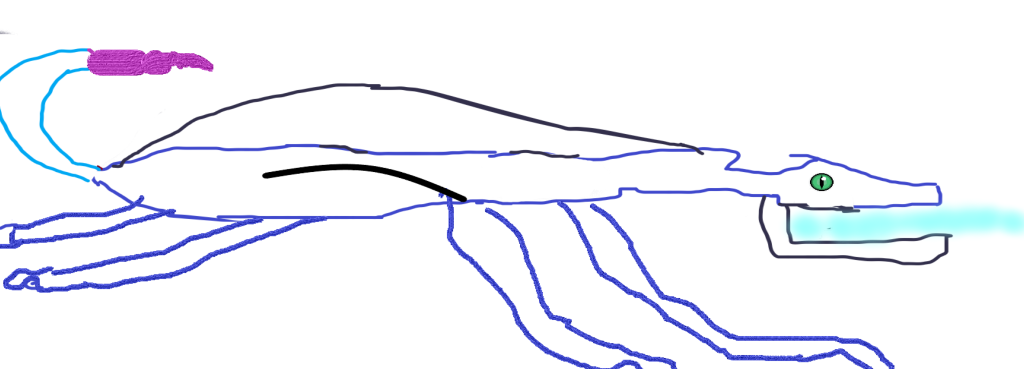
1) What’s wrong with it? I had a brain injury, caused by a bad diabetic hypo that happened a few years ago, while I was sleeping. My brain was essentially deprived of food and various important brain-cells died. On the MRI scan, one area apparently looks a bit ‘fuzzy.’
2). What’s are the effects of that? My short- term memory is much slower to act than most people’s, and gets its wires crossed sometimes. You’ll be familiar with three types of memory:
Working memory – information you’re actively using. If you’re listening to a story, you remember who the characters are. Or if someone asks you a question, you remember the question while you answer it. A popular test of this is asking someone to count backwards (from 300, perhaps) in sevens; you have to remember the task and subtract the numbers at the same time. Mine is OK: I’m in the ‘intelligent’ quartile.
Long term memory – things that you’ve remembered for ages. Long time memories are resilient, which explains why old people often ‘remember that night from the distant past as if it were yesterday,’ but not what they did this morning.
Short-term memory – things you put into your head temporarily, expecting to need them again later. This is my problem area. So you make a new pin number, use it to access your bank account once and then – gone. You buy something on the internet; ten minutes later you can’t remember doing it. Somebody says ‘by the way, we’ve changed the plan for next week….’ just as you were about to walk out of the door. It’s understandable behaviour from them, but my brain doesn’t file things away without writing it down (in a place I will definitely find the bit of paper later). Somone tells you their Dad’s dying….. you use all your people-skills, your prior experience of your own father dying, to make what feels like all the right noises. Next time you see them, you will have no conception that their Dad is even ill.
3). But we all do things like that sometimes! – yes, you do. But this is extreme. More extreme, even, than what most people with ADHD do all the time.
4). But you are actually capable of learning things? Definitely. It just takes more repetitions. I’ve been teaching my son to recite the periodic elements in order and….. only added about seven to my childhood list in the time it’s taken Tiddler to draw level with me from Hydrogen (we’re now at Selenium).
5). But how come you remember some new things really vividly and not others? Isn’t that a little bit convenient? It would be, if I remembered the things that were useful or important to me. Some things are easier to remember because they link to something else, or follow the line in which your brain wants to think i.e. they match with your previous experiences. The things that don’t flow in the direction you were expecting are harder – if a hardcore carnivorous friend switched to veganism, for insteance. It’s unexpected, therefore takes more repetitions to get in.
But it’s not just that. Whether I remember things depends on how I was feeling at the time – whether I was distracted, mentally juggling, or whether I was tired. I forget things very quickly if there’s some strong negative emotion involved – if something’s hurtful, say. If I’m upset or preoccupied, new ideas are harder to deal with.
And also, if I’m trying to concentrate on something / remember something and you talk to me about something else, then it’s very hard to put the first thing on hold and switch to the second. If you tell me that the building is burning down while I’m playing a difficult piano peice, then its cognitively incredibly hard to stop playing and walk away from the piano. So if you’re trying to tell me something important, please make very sure that you definitely have my full attention.
6). Are you just making it up? No, sorry. It might surprise a lot of people, but there’s really nothing to gain from being like this. I used to like my job. And for heaven’s sake, I don’t want to fleece a drink out of anyone. If it’s my round and I haven’t realized, you can just tell me.
7). How many times do I have to tell you my name before you learn it? It depends on who you are, and how easy your name is for me to remember. And on whether or not your partner always calls you something different (yes- that has come up). Please don’t make it mean that I don’t like you or that I’m not trying. It’s just that I’m also trying to actively remember the names of every kid in my children’s class, all my SAVTE students, what I’m doing today, where I am spatially, what’s going on with each of my children, my husband, how I’m getting home…. and I might not have expected to talk to you this morning, and my capacity’s greatly reduced.
8). How does this impact day to day life? Less badly than it used to. There was a time when every other day seemed to be a write-off; I’d frequently forget to show up somewhere or got lost. I used to lose my keys; lock myself out; forget my children or their after-school activity; go home to the wrong house; invite people to visit and forget; offend people by assuming something different to what they’ve previously explained.
9). And relationships? I don’t think I’d have chosen to be my friend either, for the first 5 years of this. If you managed to make friends with me within that time, or if you’ve been my friend all along, then thank you. You’re special. The absolutely worst, most painful thing people can do – and it’s part of modern life now – is the posting of passive-aggressive messages about it online. Like most people whose brain doesn’t function normally (or even those whose brains do), I accidentally piss people off sometimes. But getting things right depends on openess; I have to risk being incredibly open, so I have limited patience for those of you who do passive-aggressive posting because you’re too two-faced to put your name to what you think.
10) Isn’t that a lack of regard to characters who are nervous of getting criticism back? I dunno- does that make it okay? Most people would rather a direct conversation starting ‘this is a bit awkward – if I get it wrong will you tell me?’ or ‘can you help me understand?’ rather than ‘I think (all these untrue things about you, usually) and I’m going to go on letting you know I think them and not give you a chance to explain that I’m wrong.’ What can you do with that?
11). How is the memory thing affecting things NOW? It’s still getting noticably better. Every time I (know that I) make a mistake, is an opportunity to put something into place to stop it from happening again. That does rely on people making me aware of the mistakes though – and sometimes working with me to find a way of doing things that works, at a time when I can give it my full attention.
12) Are there weeks when you don’t seem to forget anything? Yes. This mostly happens in term time, when life follows a convenient set pattern and most things are diarised, and someone plans with me the night before every day. But most weeks have something different about them – a changed venue here, a parents’ evening / school concert there, a hospital appointment…… and there is a base-level after which it gets tiring. Being away from home is harder, because of the extra cognition taken even to find the toilet. But we’re getting better (I saw we – we do it as a family) at that too.
13) It happened ages ago. Why haven’t you got over it yet? Some challenges are fences for getting over. Others challenges attach to your leg, and stick with you as you climb over yet other fences – and this is one of those. Honestly, people with chronic problems are criticised however they climb their fences – not least by people with other chronic problems, ironically. People who don’t choose to acknowledge how chronically their own challenges affect them, perhaps. People who don’t like to explain themselves. For me, there are always going to need to be adaptions – so If I want to progress, I am going to have to find better ways of explaining. Meanwhile, I’m getting better at reducing the effects. It’s still getting better year on year.
14) Getting better? Really? How much of the improvement is due to your memory getting better and how much to coping mechanisms? Who knows? There are objective ‘pure memory’ psycological tests, but the ‘jumps’ between the grading levels on the test I did, are quite big; you’d need a very significant change for it to be measurable. It also costs the NHS a lot to pay someone to ask you the test questions (they have to be asked in just the right tone of voice), so they don’t, unless it would change something.
15). Should I tell you if you forget something? Yes please. I’d encourage it, as long as your tone of voice doesn’t sound as if you’re speaking to a naughty toddler. Remember, the onus for this is on me, not you; if I balls something up and you tell me, I do appreciate that.
16) But don’t you realise that people are scared to talk about things they find awkward? I’m in no position to judge if you try your best but get it slightly wrong. I have tried my best to be a good person, and got it wrong for five years now, and made many social errors in that time. But like brain injury people right around the world, I have to get up and try again every day. And again. It’s quite awkward to write this, if you think about it.
17) Why DO you keep talking about it? Becuase it’s really hard to explain and I hate being misunderstood. People assume all sorts of bad things about you if you don’t explain….. but if you do explain, you’re too self-obsessed, or talking too much. It’s difficult to find a balance, and every situation’s balance is different……..
And yes, I am trying very hard not to judge the passive aggressive posters. After all, they want me to be different and I’m not. Never-the-less, we all get a better reception and understanding if we learn to communicate kindly and openly.
It’s complicated and difficult understanding other people, isn’t it?



